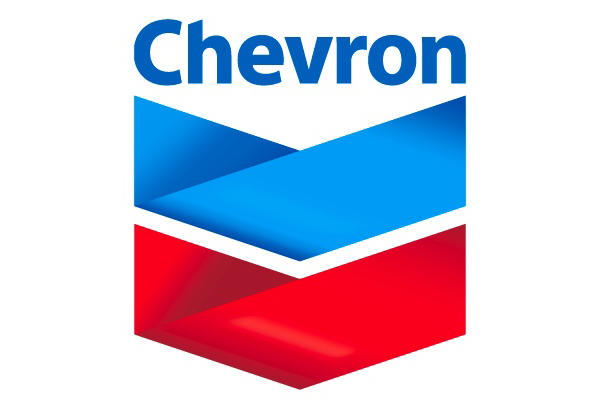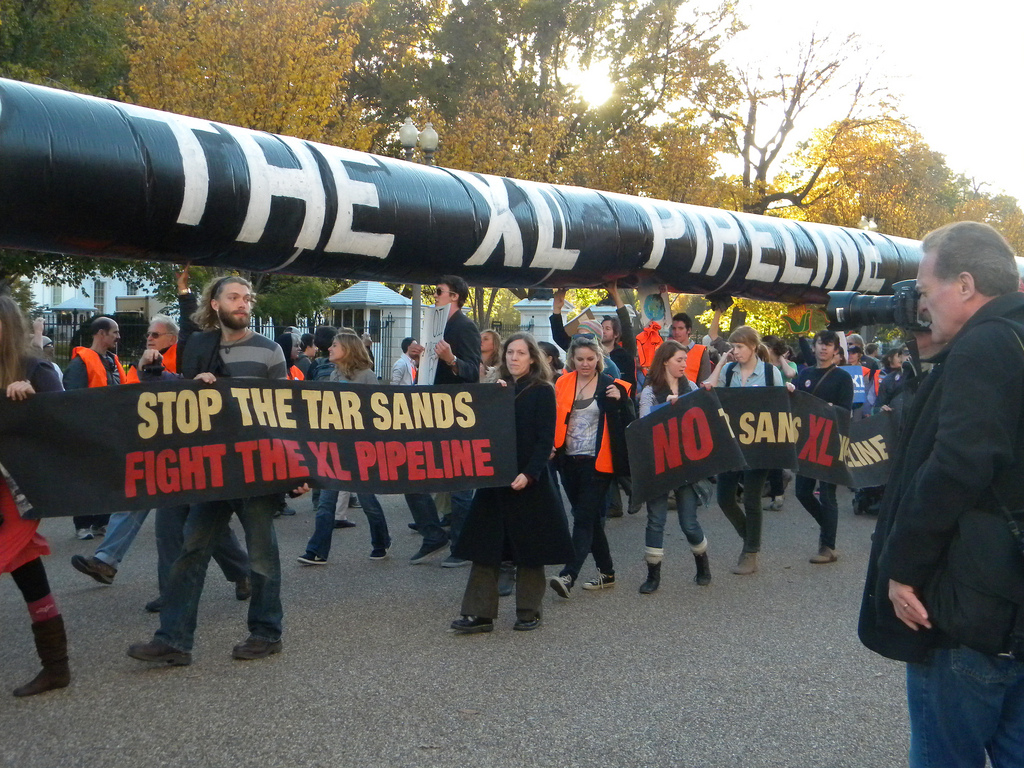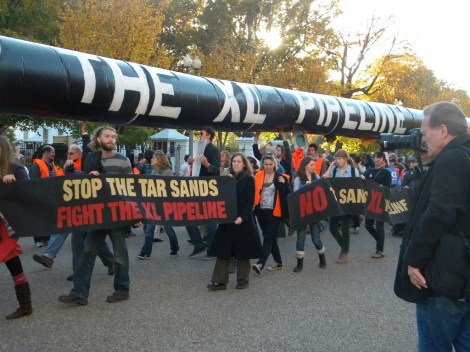Well, Keystone XL protestors, kiss your springs goodbye. Looks like you’ll be fighting TransCanada’s proposal to run a mega-pipe from the Alberta oil sands to Oklahoma until June.
From Reuters:
The Obama administration’s decision on the Keystone XL oil pipeline will not be made until at least June, a U.S. official said, which would delay the project for months and frustrate backers of Canada’s oil sands.
“We’re talking the beginning of summer at the earliest,” said the source, who did not want to be identified due to the sensitive nature of the TransCanada Corp project, which has been pending for more than four and a half years. “It’s not weeks until the final decision. It’s months.”
This can actually be considered good news. As we’ve noted multiple times, insufficient distribution outlets for tar-sands oil means that its sale price is plummeting — meaning that developing the oil sands makes less and less economic sense.
The Reuters article says as much:
The delay is painful in Canada which is suffering persistent, discounted prices for its oil because of tight pipeline capacity. The premier of the Western Canadian province of Alberta warned last week that it faced a $6 billion revenue shortfall due to current pipeline constraints.
Canada had another door slammed in its face today by the European Union. From another Reuters article:
Canada’s urgent hunt for buyers for its oil is being thwarted as the European Commission sticks to a plan to label fuel from tar sands deposits as highly polluting, deterring refiners bound by environmental rules. …
Intense pressure from Canada, seeking new markets to compensate for dwindling U.S. buying and discounted sales, has not convinced the EU executive to abandon its proposal to brand tar sands oil as more carbon-intensive than conventional crude. …
EU member states approved legislation in 2009, called the Fuel Quality Directive, with the aim of cutting greenhouse gases from transport fuel sold in Europe by 6 percent by 2020.
That leaves one big market for the oil: Asia. And with the Northern Gateway pipeline — perhaps the only viable route from Alberta to the Pacific — in jeopardy, Asia appears to be hard to reach as well.
It’s not clear why it will take the State Department until June to make up its mind. But with every day that passes, the Keystone XL pipeline makes less and less economic sense.




